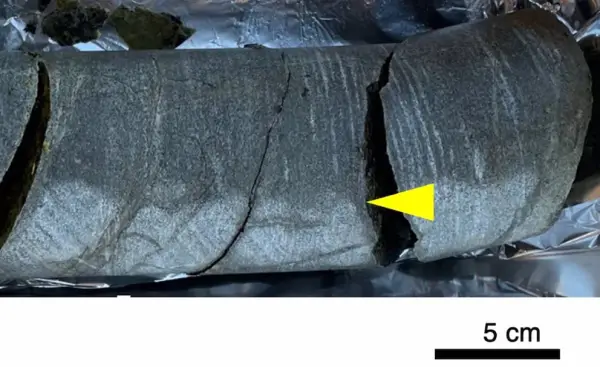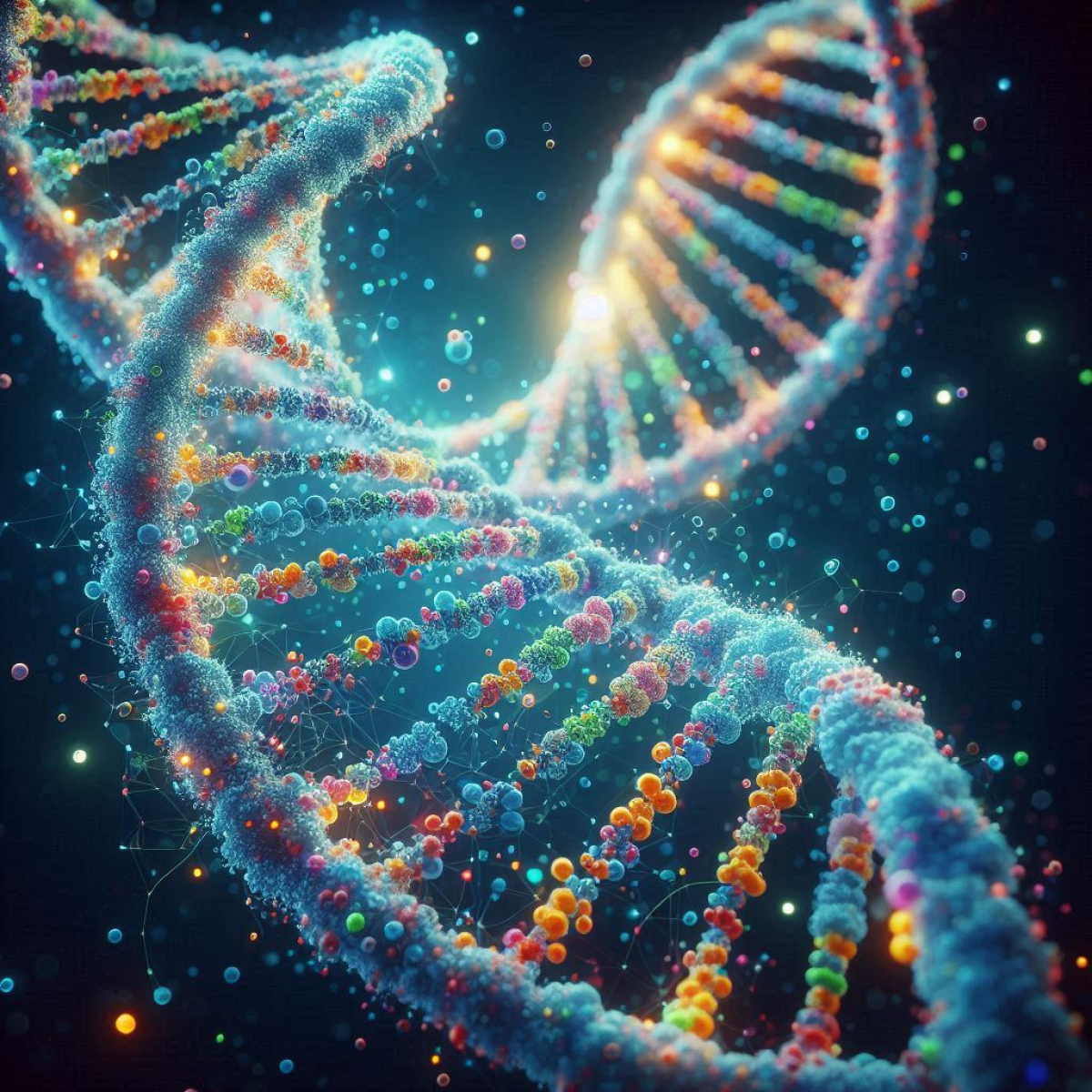Discover a 2 Billion-Year-Old Stone: Key to Evolution
Discover a 2 billion-year-old stone! It could unveil secrets about the evolution of life and sets a record in microbial life findings....
Table of Contents
- A Window to the Past: Millennial Microbes
- Microbial Detectives in Action
- Cosmic Implications
- The Future of Exploration
Follow Patricia Alegsa on Pinterest!
A Window to the Past: Millennial Microbes
Imagine finding a group of microbes that have been partying for 2 billion years. Well, maybe not partying, but they have definitely been busy surviving on a rock in South Africa.
A team of researchers, armed with more technology than a movie super-spy, discovered these tiny survivors in the Bushveld Igneous Complex. And yes, this is as impressive as it sounds.
Who would have thought that a rock could be home to our oldest known life forms?
These microbes are not just any microorganism. They are now the undisputed champions of the "Who has lived the longest in isolation?" contest on planet Earth.
These microbes are not just any microorganism. They are now the undisputed champions of the "Who has lived the longest in isolation?" contest on planet Earth.
And they have done so well that they could give us clues about what life was like when Earth was a less hospitable place, filled with volcanic eruptions and boiling oceans.
Can you imagine what we could learn if we could chat with these microbes? Well, even though we can't, their genomes can speak for them.
Confirming that these microbes actually belong to the age of dinosaurs, or even earlier, was no easy task. Scientists from the University of Tokyo tested their skills with DNA analysis, infrared spectroscopy, and high-tech microscopy.
Microbial Detectives in Action
Confirming that these microbes actually belong to the age of dinosaurs, or even earlier, was no easy task. Scientists from the University of Tokyo tested their skills with DNA analysis, infrared spectroscopy, and high-tech microscopy.
It was crucial to ensure that they were not modern intruders that crashed the party while extracting the sample.
The intrepid researchers found these microbes trapped in cracks of the rock, sealed with clay, a natural barrier that protected their tiny world from any external contamination.
The intrepid researchers found these microbes trapped in cracks of the rock, sealed with clay, a natural barrier that protected their tiny world from any external contamination.
It's as if nature itself had said: "Do not disturb, we are in the middle of an important historical preservation here!"
This discovery is not only rewriting the history books of Earth, but it is also making extraterrestrial life hunters rub their hands in excitement.
Cosmic Implications
This discovery is not only rewriting the history books of Earth, but it is also making extraterrestrial life hunters rub their hands in excitement.
If these microbes can survive in extreme conditions here, who says they couldn't do it on Mars or in some other corner of the universe? The similarities between our ancient rocks and Martian ones have put scientists in lunar detective mode.
With NASA's Perseverance rover exploring Mars and collecting samples, this terrestrial finding could be the perfect instruction manual for identifying life on the red planet.
With NASA's Perseverance rover exploring Mars and collecting samples, this terrestrial finding could be the perfect instruction manual for identifying life on the red planet.
Who knows? Perhaps we will soon discover that these microbes have distant cousins living in Martian soil.
Yohey Suzuki, the brain behind this discovery, is as excited as a child in a candy store. He claims that finding microbial life from 2 billion years ago on Earth only increases his intrigue about what we might find on Mars.
The Future of Exploration
Yohey Suzuki, the brain behind this discovery, is as excited as a child in a candy store. He claims that finding microbial life from 2 billion years ago on Earth only increases his intrigue about what we might find on Mars.
If these microbes can teach us about the past of our planet, imagine what we could learn about the evolution of life on other planets.
So, as we continue exploring, these ancient microbes remind us that life finds a way, even in the most inhospitable conditions. Who knows, maybe one day we will celebrate another historic record, this time closer to the stars. And to think it all started with a rock in South Africa!
So, as we continue exploring, these ancient microbes remind us that life finds a way, even in the most inhospitable conditions. Who knows, maybe one day we will celebrate another historic record, this time closer to the stars. And to think it all started with a rock in South Africa!

Subscribe to the free weekly horoscope
Aquarius Aries Cancer Capricorn Gemini Leo Libra Pisces Sagittarius Scorpio Taurus Virgo
-
 Researchers Discover That Comatose Patients Have Awareness
Researchers Discover That Comatose Patients Have Awareness
Study reveals that people in a coma maintain awareness, even if they do not respond. Researchers from several countries analyze how this could transform their medical care. -
 Incredible! Statue of the Virgin Mary wept blood, but DNA revealed to whom it belonged
Incredible! Statue of the Virgin Mary wept blood, but DNA revealed to whom it belonged
Gisella Cardia faces trial in Italy: a statue of the Virgin Mary 'wept' her blood, according to a DNA analysis that matches her genetic profile. -
 Doppelgängers: You may have a twin who is not your brother
Doppelgängers: You may have a twin who is not your brother
Discover what doppelgängers are: science reveals surprising genetic similarities between unrelated people, showing unexpected connections. -
 Father sentenced for forcing his son to run until he died
Father sentenced for forcing his son to run until he died
Christopher J. Gregor was convicted in New Jersey for brutally abusing Corey, whom he humiliated for his weight. The sentence reveals the cruelty of the case. -
 They create a nuclear button cell battery with energy for 100 years
They create a nuclear button cell battery with energy for 100 years
Infinity Power introduced a nuclear button cell battery that has energy capacity for 100 years!
I am Patricia Alegsa
I have been writing horoscope and self-help articles professionally for over 20 years.
Subscribe to the free weekly horoscope
Receive weekly in your email the horoscope and our new articles on love, family, work, dreams and more news. We do NOT send spam.
Astral and numerological analysis
-
 Discover your future, secret personality traits and how to improve in love, business and life in general
Discover your future, secret personality traits and how to improve in love, business and life in general
-
 Online Dream Interpreter: with artificial intelligence
Do you want to know what a dream you had means? Discover the power of understanding your dreams with our advanced online dream interpreter using artificial intelligence that responds to you in seconds.
Online Dream Interpreter: with artificial intelligence
Do you want to know what a dream you had means? Discover the power of understanding your dreams with our advanced online dream interpreter using artificial intelligence that responds to you in seconds.
-
 Discover how your pets improve your cardiovascular health and well-being
Discover how your pets improve your cardiovascular health and well-being
The company of a pet can reduce the risk of cardiovascular diseases and improve overall health. Discover its benefits! -
 Armie Hammer: From Rising Heartthrob to Falling Due to Shocking Scandals
Armie Hammer: From Rising Heartthrob to Falling Due to Shocking Scandals
Armie Hammer, former Hollywood star, faces serious allegations of abuse and cannibalism that have destroyed his career. Today he turns 38. -
 A story of a breakup: overcoming emotional grief
A story of a breakup: overcoming emotional grief
Discover the profound journey of emotional grief: a complex process that reveals its pain over time. A reflection that invites healing. -
 1,700-year-old Roman sarcophagus discovered at beach bar in Bulgaria
1,700-year-old Roman sarcophagus discovered at beach bar in Bulgaria
A 1,700-year-old Roman sarcophagus discovered at a beach bar in Varna, Bulgaria. Authorities are investigating its mysterious arrival at Radjana Beach. -
 Ideal frequency for cleaning the home refrigerator
Ideal frequency for cleaning the home refrigerator
Discover how often to clean your refrigerator and tips to keep it spotless. Ensure the freshness of your food and prolong the life of your appliance. -
 Incredible! Siamese twins successfully separated
Incredible! Siamese twins successfully separated
Success in surgery! Siamese twins Amari and Javar, separated after almost a year in the hospital, thanks to a team of 20 specialists in Philadelphia. -
 The Peruvian Carolina Herrera won an epic lawsuit against the famous Venezuelan Carolina Herrera
The Peruvian Carolina Herrera won an epic lawsuit against the famous Venezuelan Carolina Herrera
María Carolina Herrera, a Peruvian entrepreneur, won an epic lawsuit against the famous designer to use her name in a handmade soap venture. -
 Avoid self-sabotage with these effective tips
Avoid self-sabotage with these effective tips
Discover the importance of self-love: being your best friend is essential to nurture your mind and heart. Don't forget, start with yourself. -
 What does it mean to dream of regrets?
What does it mean to dream of regrets?
Discover the meaning of dreaming of lamentations in this article. We will explore the various contexts and symbolisms behind this dream to help you understand its message. -
 What does it mean to dream about toads?
What does it mean to dream about toads?
Discover the hidden meaning behind your dreams with toads. Do these green amphibians appear in your dream? Find out their symbolism and advice for your life. -
 What does it mean to dream of pain?
What does it mean to dream of pain?
Discover the meaning behind your dreams with pain in this article. Learn how to interpret your emotions and worries through your dreams. -
 What does it mean to dream of a helicopter ride?
What does it mean to dream of a helicopter ride?
Discover the hidden meaning behind dreaming of a helicopter ride. Is it a sign of success and adventure or a reflection of insecurity and fear? We explain it all in our latest article. -
 What does it mean to dream about your own death? According to psychology
What does it mean to dream about your own death? According to psychology
Did you dream of your death? Don't be scared! Psychology says it reveals hidden emotions, not premonitions. Discover what your subconscious is telling you!